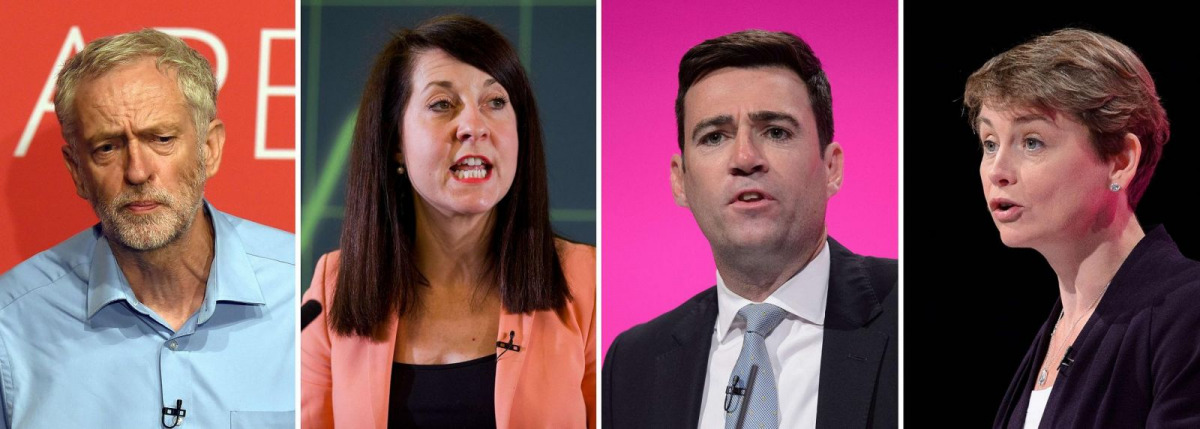

LONDON: Voting began Friday to elect the new leader of Britain's main opposition Labour party, with Jeremy Corbyn, a veteran socialist who would move the party significantly to the left, favourite to win.
The 66-year-old only entered the race as a wildcard but has attracted surging grassroots support, prompting backers to adopt the slogan "Jez We Can" in an echo of Barack Obama's 2008 presidential campaign rallying call.
But Corbyn's policies are closer to Greece's hard-left Syriza than Obama. Many top Labour figures warn the party under him could not take power in a country where elections are typically won or lost on the centre ground.
"The party is walking eyes shut, arms outstretched, over the cliff's edge to the jagged rocks below," Tony Blair, Labour's prime minister between 1997 and 2007, wrote in Thursday's Guardian newspaper.
"It is a moment for a rugby tackle if that were possible."
The results of the election will be announced on September 12, with over 600,000 members and supporters of Labour eligible to vote either by mail or online.
Supporters of Corbyn -- whose wardrobe of battered jackets and trousers contrasts with the smart suits more common at Westminster -- say his unspun approach and lack of connections with figures like Blair give him a fresh voice at a time of deep public cynicism about politics.
He has been an MP since 1983 but has never held a frontline political job, instead opposing austerity cuts and the 2003 Iraq war, which left Blair deeply unpopular, from the backbenches.
'We are doing ideas'
Corbyn also wants to scrap Britain's nuclear weapons, renationalise some industries such as the railways and involve Hamas and Hezbollah in peace talks with Israel.
"The mood is there and we happen to be in the middle of it," Corbyn said in a Guardian interview this month. "We are not doing celebrity, personality, abusive politics -- we are doing ideas."
The leadership election was triggered when previous Labour leader Ed Miliband resigned after May's general election defeat by Prime Minister David Cameron's Conservatives. The party has not held power since 2010.
As well as Corbyn, there are three other, more centrist, candidates -- Andy Burnham and Yvette Cooper -- both slick former ministers under Blair and Gordon Brown -- plus backbench MP Liz Kendall.
Kendall is urging voters to support anyone but Corbyn, telling BBC radio: "I don't want to see Labour submit our resignation letter to the British people as a serious party of government."
Cooper, meanwhile, has said Corbyn offers only "old solutions to old problems" and spoke out about the vitriolic comments made about the candidates on social media.
"We are a political party -- we should be able to debate policies and ideas and answers in a way that is actually very comradely, that is about respect for each other's ideas but have honest disagreement," she said Friday.
Candidates 'fail to inspire'
Britain's two main left-leaning newspapers, The Guardian and the Daily Mirror, came out in favour of Cooper and Burnham respectively Friday.
But even The Guardian noted that all three mainstream candidates had "failed to inspire, coming across to too many members as a triple-headed embodiment of the well-dressed, smooth-talking Westminster class".
There are also concerns about the integrity of the vote after hundreds of non-Labour supporters registered to take part.
Labour has rejected applications from around 1,200 members or backers of other parties who sought to join it as registered supporters for just £3 ($5, four euros) and take part in the ballot.
Corbyn has drawn support from a range of voters from young metropolitan professionals disaffected with a Westminster elite seen as out of touch to trade unions, the bedrock of traditional Labour support.
While bookmakers' odds and several opinion polls suggest he will win, the election is being held under a system allowing voters to rank candidates in order of preference, making the outcome harder to predict.
AFP




